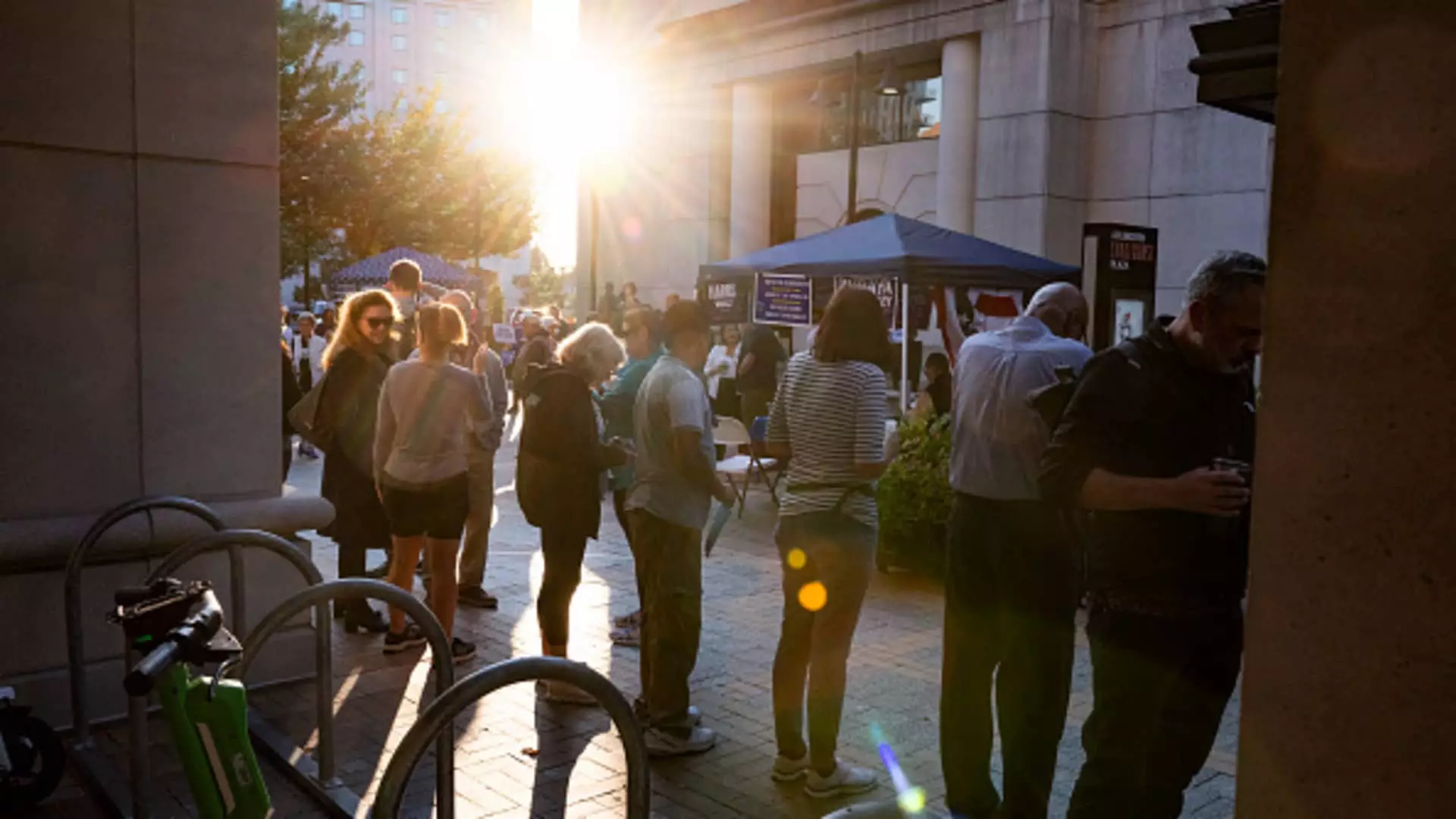In a significant legal ruling delivered last Friday, a federal judge halted Virginia’s attempt to remove alleged noncitizens from its voter rolls, showcasing the ongoing tension between state-level voter integrity initiatives and federal law. Judge Patricia Giles issued her ruling in response to the U.S. Department of Justice (DOJ), which contended that the purge executed by Governor Glenn Youngkin was ill-timed, coming merely eleven days before the crucial Election Day. This case highlights the legal mechanisms designed to prevent states from disenfranchising voters close to an election and raises pressing questions about voter eligibility and the administrative responsibilities of election officials.
Governor Youngkin’s directive aimed to cleanse the voter rolls by removing individuals who had self-identified as noncitizens on Department of Motor Vehicle forms or had neglected to specify their citizenship status. Critics argue that this approach may not only disenfranchise genuine voters but also lacks empirical support regarding the actual number of noncitizens participating in elections. According to the DOJ, evidence surfaced indicating that a number of the removed individuals—including 43 from Prince William County—were likely U.S. citizens. The revelation that 18 American citizens were erroneously removed from the rolls adds to concerns about the discriminatory impact of such purges.
Judge Giles’ ruling reflects a cautious approach to safeguarding the democratic process against potentially unjust administrative actions. She pointedly suggested that the timing of Governor Youngkin’s order—issued 90 days ahead of the elections—is not merely coincidental. This ruling does not only reinstate the 1,600 individuals previously barred from the electoral process; it also serves as a critical reminder of the federal safeguards designed to protect the integrity of our democracy. In her remarks, Giles emphasized the importance of assessing how many more citizens might have been affected by the state’s aggressive measures.
In the aftermath of the ruling, Governor Youngkin expressed his disagreement, highlighting his concerns that reinstating individuals who self-identified as noncitizens undermines the integrity of legal votes. He stated, “Every time a noncitizen votes, it cancels out a legal vote,” encapsulating the tension between ensuring voter access and maintaining the perceived integrity of the electoral process. Following Judge Giles’ decision, Virginia government officials swiftly announced plans to appeal to the Fourth Circuit and potentially escalate the matter to the U.S. Supreme Court if necessary.
This case in Virginia is emblematic of a larger, national conversation about voter suppression, election integrity, and the balance of power between state and federal jurisdictions. The judicial intervention serves as a crucial checkpoint, safeguarding the rights of voters while also posing challenges for state leaders aiming to address perceived electoral vulnerabilities. As election day approaches, the implications of this legal dispute will resonate well beyond Virginia, influencing debates about voter registration practices and the overarching integrity of election processes across the United States.


Leave a Reply